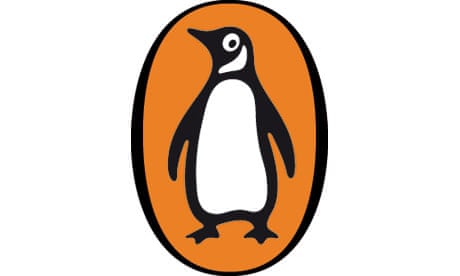Angry Birds on the way to work, or half an hour with Helen Dunmore, Julian Barnes or Emma Donoghue? A slew of short, digital-only reads is hitting the market this Christmas as publishers look to tempt the time-poor back to books.
The Penguin Shorts progamme, a collection of short digital reads, has just launched with nine titles, ranging from a creepy short story by Dunmore to an essay on multiculturalism from Elif Shafak, accounts of the battles of Alamein and Isandlwana, recipes for the perfect Christmas day from Felicity Cloake and a novella by Anita Brookner. Toby Young has written an essay on How To Set Up a Free School, John Gapper an analysis of rogue trading, Colm Tóibín a memoir of growing up in Ireland. Priced at £1.99 – "approximately the same price as a cup of coffee," says Penguin – the ebooks are available across all digital formats, each emblazoned with the iconic tri-band design with which Allen Lane launched Penguin's paperbacks back in 1935.
And Penguin is not the only major publisher dipping its toe into exclusively digital short reads. Random House debuted Storycuts, a collection of 200-odd digital short stories by authors including Barnes, Irvine Welsh and Ruth Rendell, last month, calling it a "new era" for the short story form. The pieces are largely pulled out of collections and made available as digital "singles", although the range also includes a selection of previously unpublished stories. Pan Macmillan, meanwhile, has begun a programme of digital Short Reads by Peter James, Donoghue and others. Pricing is much of a much-ness: Ether Books has published digital short stories for an iPhone application for between 50p and £2.39, depending on length, since last summer; the Pan Macmillan titles are £1, Penguin's £1.99, the Random House books vary but are at a similar level.
Venetia Butterfield, publishing director of Penguin imprint Viking, believes Lane would have embraced the idea of short digital books if he was still around. "If he was here now I expect this is what he would have wanted. The idea of the paperback was very democratic: good fiction and non-fiction for everyone to read. I feel this is very much in that tradition," she says.
Butterfield dreamed up Penguin Shorts – which will become a global initiative next year – after one too many editorial meetings when ideas for current affairs titles had to be cast aside because of the time involved in bringing them to market. She was offered four separate books about Julian Assange and Wikileaks, for example, "but at the time we all thought people were not going to be interested in a year. If we could have done it in a couple of months, though..."
"We came up with the idea because one of the frustrations we find as publishers is we have an editorial meeting every week, where we discuss things which are going on – news events which would make wonderful books. The great frustration is that by the time the author has written 100,000 words, and we've edited it, and worked with retailers' advance schedules, you can't get it out until a year after the event, by which time it's no longer newsworthy," she says.
"Publishers have long made the mistake of publishing current affairs-y books long after the event. Digital allows us to be much quicker, much more responsive."
She believes Penguin will be able to publish titles as Shorts in as little as four weeks from the point of commissioning. "You can't be quite as quick as we'd like. We can't do it in a week, but we can do it in four to five weeks which is pretty quick. We hope we will be able to respond really quite quickly to events," she says.
The format also works for short stories – "we love them but publishing them collected into a whole book: that's not the way we read short stories. This gives us the freedom to publish the in the way they should be published: on their own" – and for essays, she says. "It's reviving the tradition of the essay and the pamphlet. The Short allows you to explore a subject in more depth than a newspaper article, but it's not going to take 10 hours of reading."
After its launch with nine titles, Penguin plans to bring out one or two new Shorts a month, with future authors to include novelist Will Self, BBC arts editor Will Gompertz, FT economy editor Alan Beattie and Observer food writer Jay Rayner. "We are commissioning a lot at the moment," says Butterfield. "Authors are really embracing it and love the idea of getting new readers, trying something different."
Publishers hope readers will use the shorts to fill time on a commute or during a lunch hour, or as a means to find their way back into reading. "It's about those moments on a train, a plane – the slot between dinner and bedtime," says Butterfield. "That's the joy of the Shorts: we can get through to people who say they don't have time."

Comments (…)
Sign in or create your Guardian account to join the discussion